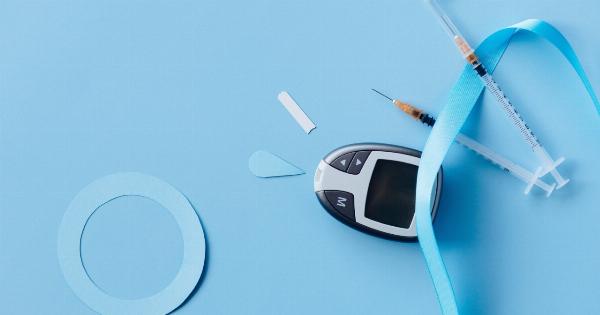Type 2 diabetes is a chronic medical condition that affects millions of people worldwide. Though it can be controlled with proper diet, exercise, and medications, there is no known cure for this disease.
However, recent research has shown that hypoxia, a condition that results from reduced oxygen levels in the body, may have the potential to reverse type 2 diabetes.
What is Hypoxia?
Hypoxia is a medical condition that results when the body is unable to get enough oxygen to meet its needs. It can occur due to a variety of reasons, including lung disease, heart disease, or high altitude.
One of the most common causes of hypoxia is sleep apnea, a condition in which a person stops breathing periodically during their sleep.
Why is Hypoxia Important in Type 2 Diabetes?
Researchers have found that hypoxia may play a vital role in the development and progression of type 2 diabetes. Hypoxia can cause inflammation and insulin resistance, which are two of the key factors that contribute to the development of this disease.
It can also lead to the breakdown of beta cells in the pancreas, which are responsible for producing insulin.
How Can Hypoxia Reverse Type 2 Diabetes?
The body has a natural mechanism to respond to hypoxia, called the hypoxic response. This response triggers the release of certain proteins and hormones that help the body to adapt to low-oxygen conditions.
One of these proteins, called hypoxia-inducible factor (HIF), has been found to have a potent effect on reversing insulin resistance and increasing the production of insulin.
Research has shown that exposing the body to controlled levels of hypoxia can activate the hypoxic response and increase the levels of HIF in the body.
This, in turn, can help to reverse insulin resistance and increase insulin production, potentially leading to a reversal of type 2 diabetes.
How is Hypoxia Induced in the Body?
There are several ways to induce hypoxia in the body. The most commonly used method is through intermittent hypoxia, which involves exposing the body to short periods of low oxygen levels, followed by periods of normal oxygen levels.
This can be done through various methods, such as using a hypoxia machine or sleeping in a hypoxia tent.
Another method to induce hypoxia is through exercise. Exercise causes the body to use more oxygen, which can lead to temporary hypoxia.
This can be particularly effective in reversing type 2 diabetes, as it also helps to control weight and improve overall health.
What Are the Potential Benefits of Hypoxia Treatment?
The potential benefits of hypoxia treatment for type 2 diabetes are significant. Studies have shown that hypoxia treatment can:.
- Reverse insulin resistance
- Increase insulin secretion
- Improve glucose tolerance
- Reduce inflammation
- Promote weight loss
- Improve heart health
- Reduce the risk of cardiovascular disease
Additionally, hypoxia treatment is generally safe and well-tolerated. It has few side effects, and the risk of complication is low.
Is Hypoxia Treatment Suitable for Everyone?
While hypoxia treatment has shown promise in reversing type 2 diabetes, it may not be suitable for everyone.
People with certain medical conditions, such as chronic obstructive pulmonary disease (COPD) or heart disease, may not be able to tolerate hypoxia treatment. Additionally, the treatment may not be suitable for pregnant women or people with certain medical devices, such as pacemakers.
It is essential to consult with a healthcare professional before beginning hypoxia treatment to determine if it is safe and appropriate for you.
Conclusion
Hypoxia treatment has shown great promise in reversing type 2 diabetes, offering new hope to millions of people suffering from this chronic disease.
While further research is needed to fully understand the effects of hypoxia and its potential benefits, early results are promising. As always, it is essential to consult with a healthcare professional before beginning any new treatment to ensure that it is safe and appropriate for you.



























